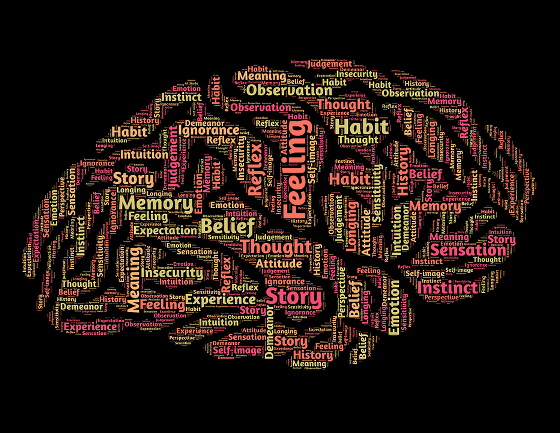It turns out that the brain may stick to known habits even when learning a new task

When trying to learn something new, human beings sometimes try to understand new things in the light of past experiences. From the research using the interface between the brain and the computer, it became clear why it is difficult to learn new things due to its past knowledge.
Brain-Computer Interfaces Show That's Neural Networks Learn by Recycling | Quanta Magazine
https://www.quantamagazine.org/brain-computer-interfaces-show-that-neural-networks-learn-by-recycling-20180327/
The characteristic of intelligence that is provided for higher organisms such as humans lies in the ability to "learn". As already shown in the past few decades of research, our brain has advanced "Plasticity"Brain neurons can rebuild their connections in response to new stimuli.
However, researchers at Carnegie Mellon University and University of Pittsburgh found that there are restrictions on this learning ability. The brain is very flexible and is generally adaptive, but at least on a short time axis, learning from existing "repertoire of neurons" rather than reconstructing the connection of neurons from scratch during learning It is clear that it takes an inefficient method of "recycling" the contents of the waste.

Neuroscientist Byron Yu, a biomedical engineer at Carnegie Mellon University who is one of the research leaders, said, "Every time I do squash, I am made to realize that I am a tennis player." Mr. Yu has tennis experience over many years, but when playing squash this experience is a matter of fact and he can not adapt to the squash specific style of play. Squash uses a shorter racquet than tennis so you need a faster shot different from tennis, but Mr. Yu is going to play tennis and he forgets what the brain already knows It seems that things that do not seem to have appeared in the play.
Mr. Yu has observed evidence of similar plasticity lack at the nerve level by observing the activity of the brain under study with his colleagues in the study. From the findings and related research of the team, it is highlighting why some things are harder to learn than others.
A few years ago, Yu and Aaron Batista and colleagues at the University of Pittsburgh and colleagues started using "BCI" (brain-computer interfaces) as a tool for investigating the brain in detail . This device is a chip of the size of the nail, which can track the electrical activity of 100 neurons at a time in the "motor cortex" of the brain responsible for exercise, flowing through individual neurons over time By monitoring the sequence of voltage spikes it is possible to calculate the "spike rate" characterizing the behavior of each neuron during the execution of the task.

This device has a much higher pattern recognition capability than the human eye and can reliably capture the changes occurring in the subject's brain. It is possible to capture the behavior of subjects at the nerve level of the brain that it is going to cause something, and it seems to be able to detect the function of the brain when trying to move the arm up and down or right and left.
We investigated the function of neurons in the brain during learning using this device and discovered that it is not a function called "realignment" of neurons that was initially predicted, but is called "reassociation" We have discovered that a very inefficient approach has been taken. It is revealed that new tasks were learned only by exchanging the existing nerve activity pattern and exchanging those tasks in the animal's brain used for the experiment. It was confirmed that "recycling" that the mass of the neuron which had once moved the cursor to the left now moves the cursor to the right and moves the lump moving to the right to the left is done.
This means that when you learn new things your brain is based on old learning content, which in turn means that you "may be affected by old learning content when you remember something" I will. "In the short term, the brain's plasticity may be more limited than we thought." "Learning involves forgetfulness.The brain discards the way you already remember it It may be that she dislikes that she will get out of it. "

Related Posts:
in Science, Posted by darkhorse_log







